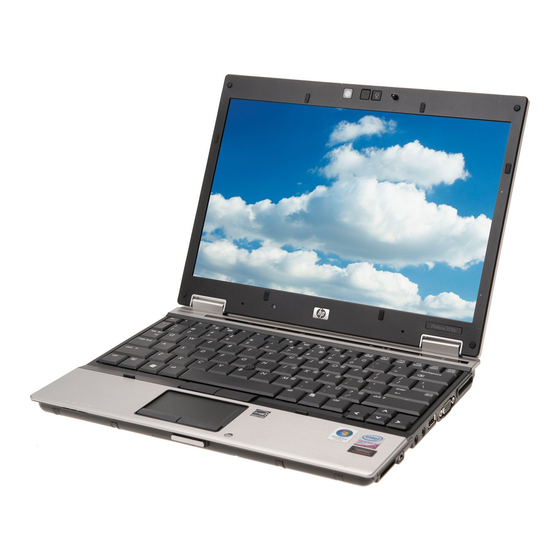HP 2530p - EliteBook - Core 2 Duo 2.13 GHz Manuallini - Pagina 8
Sfoglia online o scarica il pdf Manuallini per Desktop HP 2530p - EliteBook - Core 2 Duo 2.13 GHz. HP 2530p - EliteBook - Core 2 Duo 2.13 GHz 12. Notebook pc
Anche per HP 2530p - EliteBook - Core 2 Duo 2.13 GHz: Specifiche tecniche (36 pagine), Manuale del prodotto (16 pagine), Manuale d'uso (15 pagine), Manuale di rete (16 pagine), Specifiche tecniche (2 pagine), Manuale d'uso (27 pagine), Manuale di configurazione (19 pagine), Panoramica (16 pagine), Manuale di installazione del software (8 pagine), Manuallini (6 pagine), Manuale di installazione e configurazione (18 pagine), Installazione del driver (20 pagine), Manuale (20 pagine), Manuallini (7 pagine), Manuale d'uso (31 pagine), Manuale d'uso (46 pagine), Manuale d'uso (44 pagine), Manuale d'uso (42 pagine), Specifiche tecniche (45 pagine), Manuale d'uso (30 pagine), Manuale d'uso (24 pagine), Specifiche rapide (46 pagine)

